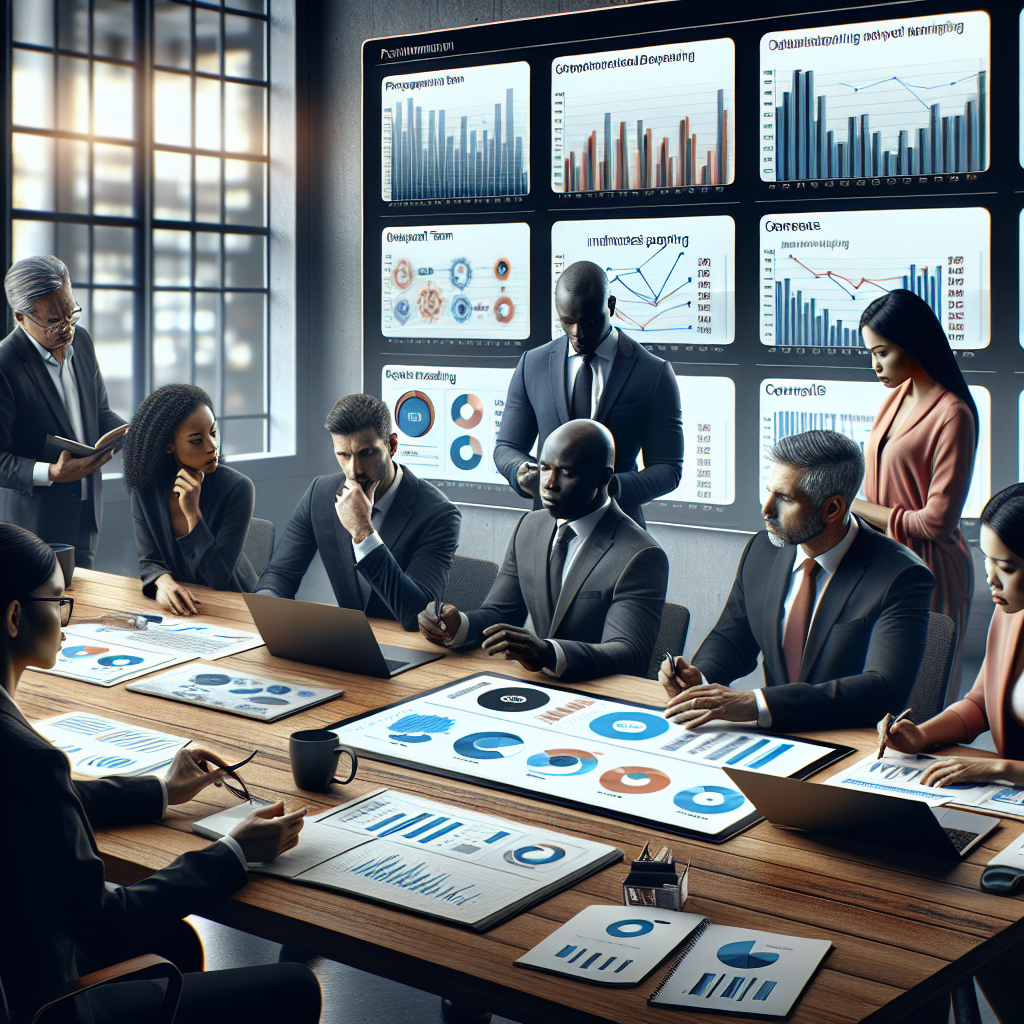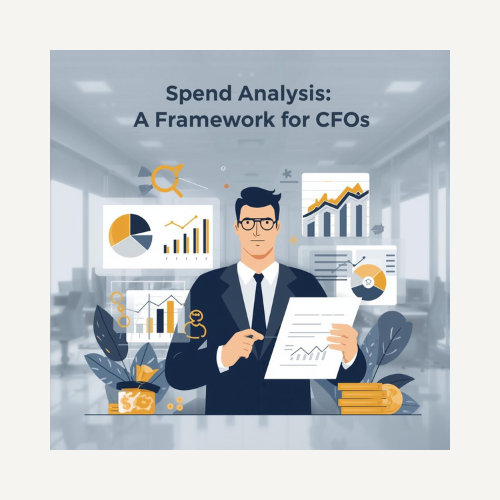Innovative Multisectoral Supplier Inclusivity and Sustainability Acceleration Model: Driving Impact and Resilience


Why Multisectoral Supplier Inclusivity and Sustainability Models Matter
Supplier inclusivity acts as a key catalyst for economic empowerment, fresh innovation, and community vitality. When paired with sustainability’s goals of reducing carbon footprints and advancing social equity, and aligned across sectors, the result is transformative change.
Here’s why it counts:
- Accelerated Impact: Cross-sector collaboration pools resources to address social and environmental challenges comprehensively.
- Resilience and Agility: Diverse suppliers provide supply chain stability, readying businesses for geopolitical shifts and regulatory complexities.
- Innovation Boost: More inclusive voices spark novel green technologies and sustainable business ideas.
- Stakeholder Confidence: Transparent, accountable supply chains meet growing ESG expectations from investors, regulators, and consumers.
Bottom line: embracing supplier diversity and sustainability together fuels competitive advantage, uplifts communities, and advances global Sustainable Development Goals.

What’s New in 2023? The Innovation Roundup
Cross-Sector Partnerships and Blended Finance
The UN Joint SDG Fund mobilized an impressive $4.96 billion, combining public, private, and philanthropic capital to back sustainable projects globally—particularly benefiting Small Island Developing States and vulnerable groups. Initiatives like the Indonesia Impact Fund and Blue Finance Accelerator effectively connect women entrepreneurs and green startups with eager investors, creating a powerful matchmaking ecosystem for impact.
Digital Value Chain Integration
Technology has become a game-changer, enabling real-time tracking of supplier diversity spend and sustainability metrics. Smallholder farmers and local suppliers now actively participate in global value chains thanks to programs such as UNSDSN Climate Hub’s Maritime and Blue Economy accelerators, which support sustainable ventures across industries.
Global Corporate Leadership
Enel Group exemplifies leadership with over 8,300 qualified suppliers, embedding circular economy practices that reduce raw material reliance and environmental impact. Accenture’s Supplier Inclusion & Sustainability program spans 22 countries, empowering minority-owned and veteran-owned businesses while raising ESG standards.

Real-World Wins: Case Studies That Prove It Works
Healthcare Sector: Beyond Compliance to Community Impact
A leading US Catholic healthcare system partnered with STARS to transform supplier diversity and sustainability, implementing automated vendor onboarding and real-time reporting dashboards. The results included nearly 100% on-time supplier reporting, a broader certified diverse supplier base, and significant job creation in underserved communities.
Women’s Financial Inclusion Across Sectors
The Alliance for Financial Inclusion showcased how integrating finance, agriculture, and technology sectors accelerates women’s access to digital financial services and entrepreneurial support, embedding economic empowerment into multisectoral supply chains.
Sustainable Supply Chains Across the Board
Top corporations now extend sustainability criteria beyond direct suppliers to all tiers, enhancing transparency and ESG compliance. Trainings and capacity-building empower suppliers to adopt sustainable practices swiftly without sacrificing agility.

Expert Playbook: Keys to Success
Experts emphasize embedding supplier inclusivity and sustainability deeply into organizational strategies, supported by data-driven insights and collaborative teamwork.
| Approach | Key Drivers | Success Factors | Challenges |
|---|---|---|---|
| Mindset & Policy Shifts | Leadership commitment, Bias training | Capability building, Mentorship | Overcoming legacy systems and habits |
| Supplier Development Programs | Local partnerships, Contextual focus | Tailored support, Ecosystem growth | Supplier readiness, Limited resources |
| Digital Procurement & Sustainability | Tech adoption, Analytics | Real-time data, Risk management | Data fragmentation, Verification challenges |
| Public-Private Collaboration | Skills development, Standards alignment | Shared tools and training | Coordination gaps, Talent shortages |
Top procurement leaders integrate inclusion and sustainability KPIs, support SME growth, forge coalitions with shared standards, and deploy AI-powered platforms to monitor risks—turning supply chains into engines of equity and environmental responsibility.

The Real Talk: Challenges Still in the Mix
This journey isn’t without hurdles:
- Leadership and Culture: Efforts can stall without visible, dedicated leadership and mindsets remain stuck in traditional procurement biases.
- Resource Gaps: SMEs often struggle to meet complex sustainability standards without tailored assistance.
- Data Blues: Fragmented or incomplete data hinders transparency and effective monitoring.
- Compliance Overload: The growing burden of certifications and reporting can overwhelm teams and suppliers.
- Cost vs. Impact: Sustainable diverse suppliers may initially seem costlier, challenging traditional cost-driven models.
Solutions lie in persistent leadership, focused capacity-building, simplifying compliance waterways, enabling open data exchange, and fostering multisectoral collaboration.

Crystal Ball Time: What’s Next for 2025 and Beyond?
Seamless Integration
Supplier inclusion and sustainability will be fully unified within procurement and ESG strategies, as demonstrated by pioneers like Unilever who blend these goals to enhance agility and innovation.
Impact You Can Measure (and Trust)
Metrics will evolve beyond spend tracking to include supplier retention, job creation, carbon reductions, and local economic contributions—with transparency as a cornerstone.
Regulatory & Stakeholder Pressure
Global regulations will demand end-to-end supply chain visibility and compliance, accelerating inclusive and sustainable supplier adoption.
Resilience Through Local & Diverse Sourcing
Heightened geopolitical and market volatility will make diverse, local suppliers indispensable for supply chain robustness.
AI and Tech Takeover
Artificial intelligence and digital platforms will streamline supplier discovery, vetting, impact assessment, and risk management at scale.
Focus on Small and Social Enterprises
The spotlight broadens to embrace micro and social enterprises that drive sustainable local economic growth.

Bringing It All Together: Your Roadmap to Accelerated Inclusive and Sustainable Supply Chains
Innovative multisectoral models are reshaping fragmented efforts into resilient, thriving ecosystems. By harnessing partnerships, innovative finance, technology, and capacity-building, businesses can create value for themselves, communities, and the planet.
Keep these lessons front and center:
- Embedding diversity and sustainability unlocks innovation and impact.
- Cross-sector coalitions and blended finance amplify resources and reach.
- Real-time data and digital tools ensure transparency and agility.
- Culture change, strategic investment, and streamlined compliance pave the way.
- AI, evolving regulations, and emphasis on local sourcing will redefine procurement.
Ready to future-proof your supply chain while making a meaningful difference? Begin by evaluating gaps, engaging stakeholders, enhancing data systems, exploring blended finance, and measuring success effectively.
Because when it comes to inclusive and sustainable supply chains, this innovative acceleration model is your gold medal playbook.





